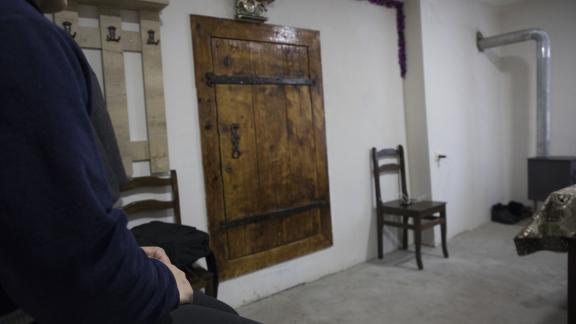High costs a major barrier, especially for women in vulnerable situations
The cost of abortion can be a major challenge for women in Georgia. “Abortion is quite expensive – between 100 (EUR 33) and 500 lari (EUR 163). The average income in Georgia is 600 - 800 (EUR 196 - 262) lari, so it’s a big chunk of a monthly salary. Some people can’t afford it. Abortion is not covered by the national health care system, not even for socially vulnerable people,” says Ana Iluridze, Head of the Gender Equality Department at the Public Defender's Office of Georgia. Abortion is supposed to be available free of charge to survivors of sexual assault, but bureaucratic measures mean that in reality most aren’t able to access this.
Disturbingly, those at the very top of power in women’s sexual and reproductive health do not seem to be aware that affordability is a barrier. When questioned about the cost of abortion care, Georgia’s Deputy Minister of Health Maia Lagvilava appeared to think it was financially accessible to most women: “The services are available… and the population has private insurance as well. The services are offered,” she said, adding the caveat that she wasn’t actually sure if abortion was covered under private insurance in the country.
Stigma and discrimination prevent free and safe reproductive lives
Stigma and discrimination against women’s reproductive freedom is high in the country, especially for those seeking abortion care. Women are forced to travel great distances, sometimes at crippling expense, to try to keep an abortion secret from their community.
One of the major issues is that "women’s sexual and reproductive health is taboo in Georgia,” explains Nino Shurgaia, a youth leader with IPPF member HERA XXI in the city of Senaki. When trying to research access to abortion care in the region she found time and time again that families were not willing to discuss the matter, and many feared what their community would think: “They are afraid that their neighbours or family will find out that they had an abortion. They were worried the information they share with me would be leaked,” she says, adding that often during private interviews she set up as part of the research, a mother-in-law or husband would interrupt and start asking what they were talking about.
Indeed, community pressure and social stigma mean that women struggle to live free and safe reproductive lives. One woman described feeling as though ending a pregnancy was her only option because “I was worried what people would think… It wasn’t a problem for me to have a child out of wedlock, but it would have been a problem in my community.”
Read the next blog in our series on obstacles to abortion care and women's reproductive freedom in Georgia.
Main photo: Marine is from a small village in southwestern Georgia, near the city of Akhaltsikhe. Affordability was a major challenge when she and her husband needed to access abortion care: “We were still young and my husband’s income wasn’t high. We couldn’t cover the cost of abortion with our salaries.” Credit: Jon Spaull/IPPF EN
when
country
Georgia
Subject
Abortion Care
Related Member Association
Association HERA XXI - Georgia









